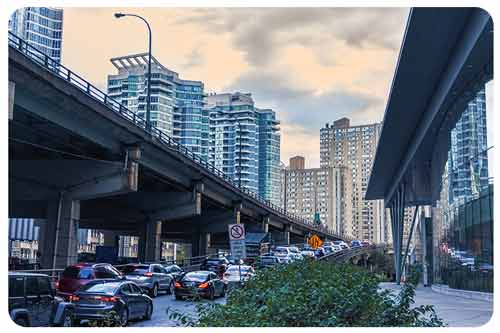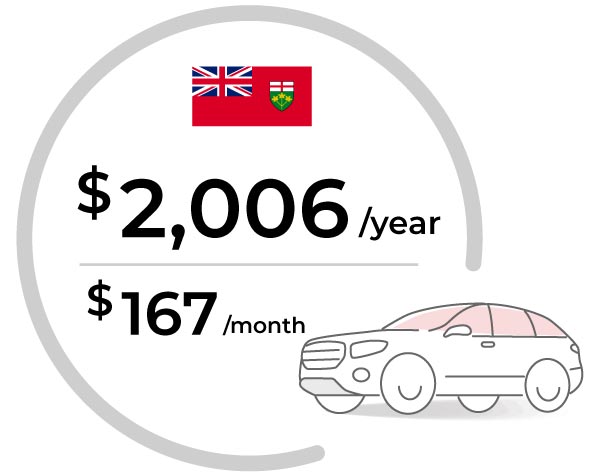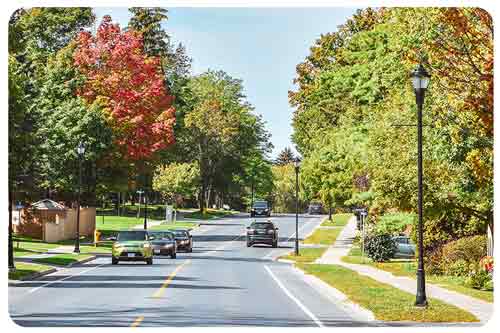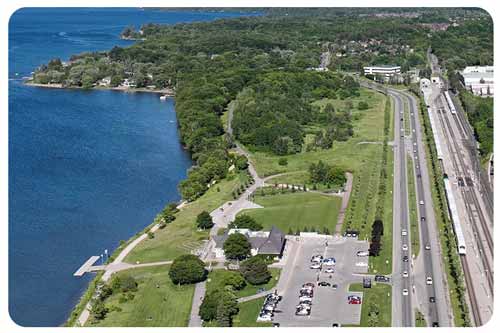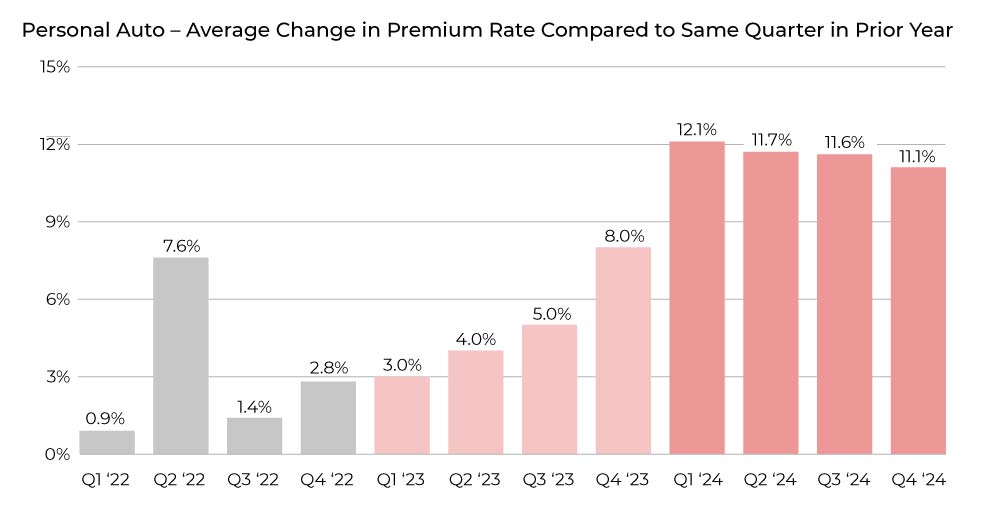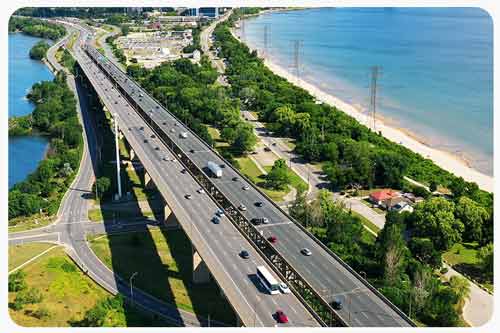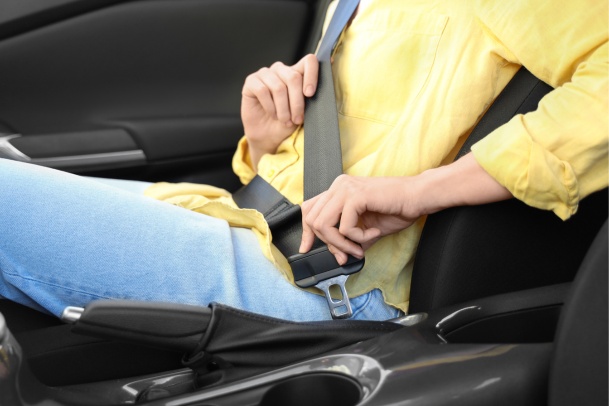Optional car insurance in Ontario
You can add extra auto insurance coverage that is above the minimum required amount. The most common are comprehensive, collision, all-perils, and specific perils plans. There are also different types of endorsements (riders) that allow you to personalize your policy.
Comprehensive insurance
There are a lot of threats to your vehicle when it’s parked in the driveway, in a parking lot, or on the street. It’s not just when you are driving that you have to consider. Comprehensive insurance protects against non-collision damage. This includes vehicle damage from weather events, theft, vandalism, fire, earthquake, and falling objects. For example, you’ll be covered if a tree falls on your car or if it is scratched in the parking garage. While options, this may be required by auto lenders if you lease your vehicle.
Scenario: Your vehicle is parked in the driveway. Overnight, an intense storm passes through your neighbourhood. Lightning strikes a nearby tree, and a large branch falls on your car, breaking the windshield and causing damage to the roof and hood.
How comprehensive helps: Since this coverage protects you from non-collision damage, your insurer would cover the damage, up to your plan limit. You would have to pay a deductible. But with comprehensive coverage, your insurance would cover the damage, and you would have to pay for repairs out of pocket.
Collision insurance
Collision insurance (upset coverage) protects against damage from a collision with another vehicle or object. This applies to most crashes where you are fully or partially at fault. For example, you back into another vehicle when backing out of your driveway.
Scenario: You are at the mall. You are backing out of a parking spot, and you hit a light pole. You cause a significant dent in your bumper. It needs to be replaced because your trunk won’t open properly anymore.
How collision helps: This will cover the cost of the damage. Most people assume that standard insurance will cover collision damage. It would if you hadn’t caused the collision. But if you have some level of fault, and do not have collision coverage, you may not be covered.
Specified perils
Specified perils protect against pre-defined risks named in your policy. This can include theft, fire, wind, hail, water, and other types of damage.
If a peril is listed, you have protection. If it is not, you will not be covered. Even though it may cost less than comprehensive insurance, you could open yourself up to greater threat exposure.
Scenario: You head downtown for dinner on a Friday night. You park at a public lot and then head off for your meal. When you return, your vehicle is not where you left it. It’s nowhere to be found. Someone has stolen your car.
How specified perils coverage helps: Luckily, you included theft as one of the covered perils. Your insurance will help cover your vehicle's damage or replacement costs if it's not recovered. If you choose not to include theft, you would not have coverage.
All perils
All perils combine comprehensive and collision. You are covered for all types of risk unless they are explicitly excluded.
This is the most thorough type of plan. You will have peace of mind knowing you are covered for most things. But, if you see an exclusion listed, you are not covered. For example, if earthquakes are listed as an exclusion, you will not be covered for damage to your automobile because of an earthquake.
Scenario: Your 14-year-old teenage son takes your car out for a joyride around the block with some friends. They lose control and drive into a ditch, damaging the car in the process.
How all perils help: This combines collision and comprehensive. It also protects you if someone in your household steals your vehicle. So, you would have coverage for the damage they caused.
Emergency roadside assistance
This service covers you if your vehicle has mechanical issues or breaks down. You can add it to your plan to give you peace of mind, knowing you can get help when you need it most. It is offered as an additional service. Roadside assistance coverage can also be purchased separately from other providers.
Scenario: You are going down a busy road during rush hour traffic. You hit a pothole when changing lanes and get a flat tire. You pull over to the side of the road and cannot drive your vehicle any further.
How roadside assistance helps: Call the number provided by your insurer for assistance. This service will cover the cost of the tow truck.
Ontario policy change form endorsements or add-ons
There are also optional Ontario Policy Change Forms (OPCF) or endorsements that you can add for optional coverage. You can add one or all of these when you get a quote. The most common OPCF endorsements that people add are:
- OPCF 27: This allows you to drive another person's vehicle and is also known as Legal Liability for Damage to Non-Owned Automobiles.
- OPCF 20: This covers expenses for a rental car if your vehicle is being repaired or replaced after an accident. This is different than rental car insurance.
- OPCF 43: Also called Removing Depreciation Deduction, this endorsement removes depreciation from the value of a claim settlement when a vehicle is a total write-off.
- Accident forgiveness / OPCF 39: Accident forgiveness is sometimes included in a plan. It can also be added as an optional endorsement called OPCF 39, which forgives you for your first at-fault accident.
- OPCF 44: The Family Protection endorsement covers you or a family member with additional protection if you are in an accident with an at-fault driver underinsured or without coverage.
- OPCF 49: This is an agreement not to recover for loss or damage from an automobile collision.










